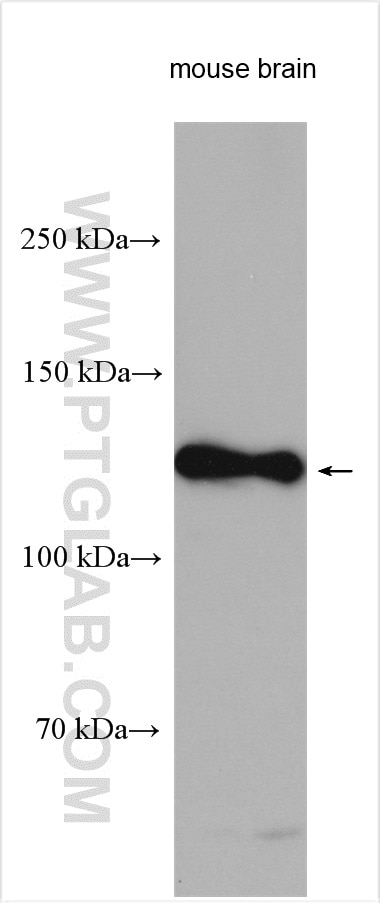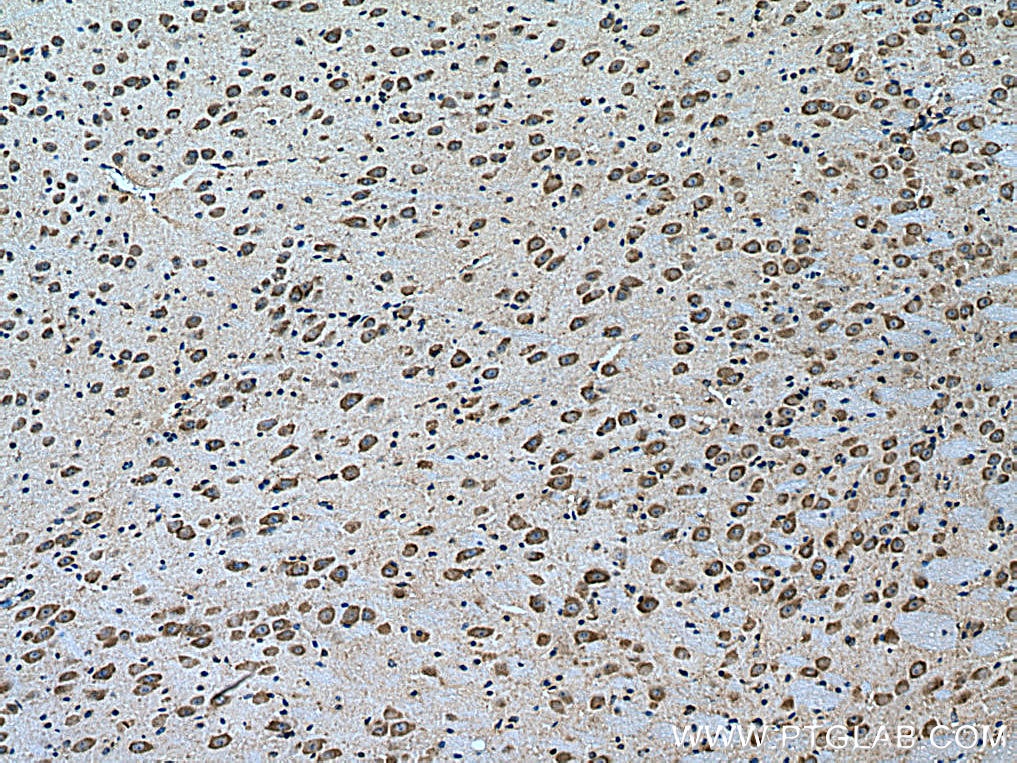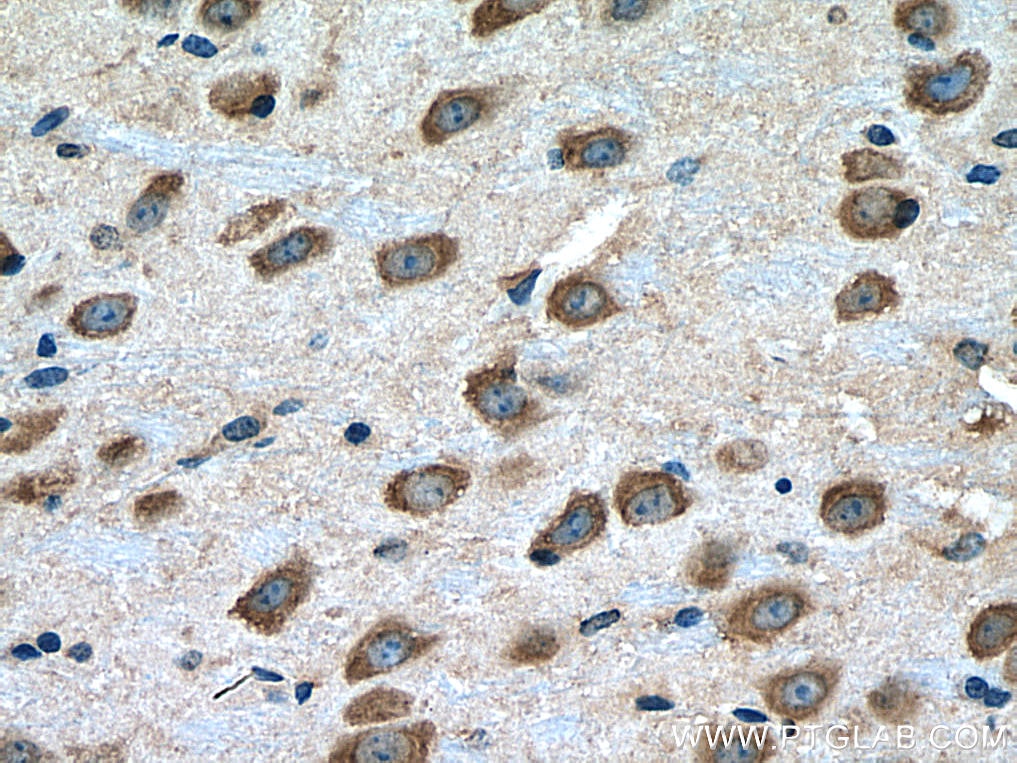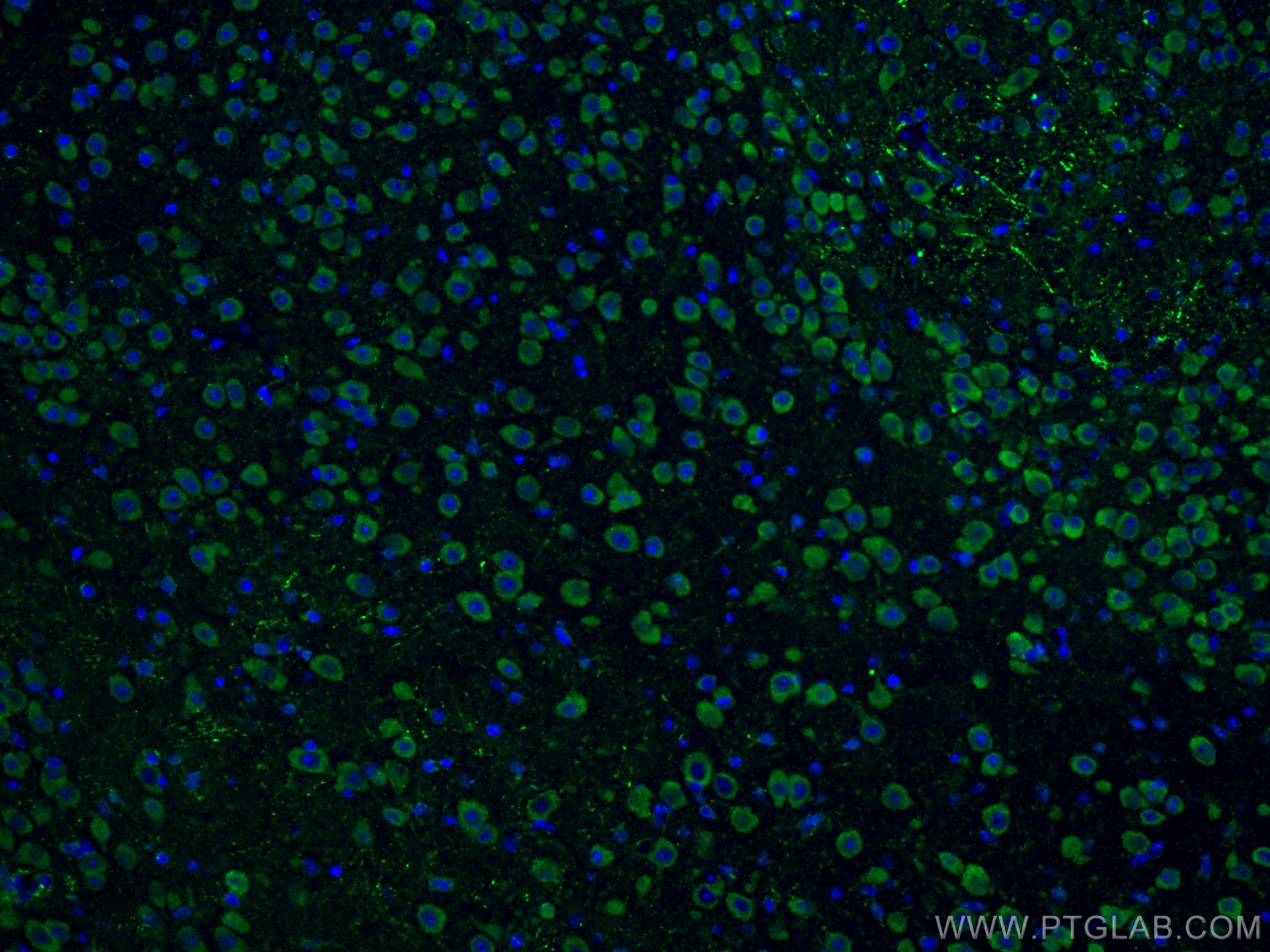- Phare
- Validé par KD/KO
Anticorps Polyclonal de lapin anti-Notch1
Notch1 Polyclonal Antibody for WB, IF, IHC, ELISA
Hôte / Isotype
Lapin / IgG
Réactivité testée
Humain, souris et plus (2)
Applications
WB, IHC, IF-P, IP, ELISA
Conjugaison
Non conjugué
N° de cat : 10062-2-AP
Synonymes
Galerie de données de validation
Applications testées
| Résultats positifs en WB | tissu cérébral de souris, |
| Résultats positifs en IHC | tissu cérébral de souris, il est suggéré de démasquer l'antigène avec un tampon de TE buffer pH 9.0; (*) À défaut, 'le démasquage de l'antigène peut être 'effectué avec un tampon citrate pH 6,0. |
| Résultats positifs en IF-P | tissu cérébral de souris, |
Dilution recommandée
| Application | Dilution |
|---|---|
| Western Blot (WB) | WB : 1:1000-1:4000 |
| Immunohistochimie (IHC) | IHC : 1:50-1:500 |
| Immunofluorescence (IF)-P | IF-P : 1:50-1:500 |
| It is recommended that this reagent should be titrated in each testing system to obtain optimal results. | |
| Sample-dependent, check data in validation data gallery | |
Applications publiées
| KD/KO | See 2 publications below |
| WB | See 30 publications below |
| IHC | See 7 publications below |
| IF | See 10 publications below |
| IP | See 3 publications below |
Informations sur le produit
10062-2-AP cible Notch1 dans les applications de WB, IHC, IF-P, IP, ELISA et montre une réactivité avec des échantillons Humain, souris
| Réactivité | Humain, souris |
| Réactivité citée | rat, Humain, poulet, souris |
| Hôte / Isotype | Lapin / IgG |
| Clonalité | Polyclonal |
| Type | Anticorps |
| Immunogène | Notch1 Protéine recombinante Ag0107 |
| Nom complet | Notch gene homolog 1 (Drosophila) |
| Masse moléculaire calculée | 272 kDa |
| Poids moléculaire observé | 120 kDa |
| Numéro d’acquisition GenBank | BC138441 |
| Symbole du gène | Notch1 |
| Identification du gène (NCBI) | 18128 |
| Conjugaison | Non conjugué |
| Forme | Liquide |
| Méthode de purification | Purification par affinité contre l'antigène |
| Tampon de stockage | PBS avec azoture de sodium à 0,02 % et glycérol à 50 % pH 7,3 |
| Conditions de stockage | Stocker à -20°C. Stable pendant un an après l'expédition. L'aliquotage n'est pas nécessaire pour le stockage à -20oC Les 20ul contiennent 0,1% de BSA. |
Informations générales
NOTCH1, also named as TAN1, belongs to the NOTCH family. NOTCH1 functions as a receptor for membrane-bound ligands Jagged1, Jagged2 and Delta1 to regulate cell-fate determination. Upon ligand activation through the released notch intracellular domain (NICD) it forms a transcriptional activator complex with RBP-J kappa and activates genes of the enhancer of split locus. NOTCH1 affects the implementation of differentiation, proliferation and apoptotic programs. It may be important for normal lymphocyte function. In altered form, may contribute to transformation or progression in some T-cell neoplasms. NOTCH1 is involved in the maturation of both CD4+ and CD8+ cells in the thymus. May be important for follicular differentiation and possibly cell fate selection within the follicle. During cerebellar development, may function as a receptor for neuronal DNER and may be involved in the differentiation of Bergmann glia. Defects in NOTCH1 are a cause of bicuspid aortic valve (BAV).
Notch is synthesized in the endoplasmic reticulum as an inactive form which is proteolytically cleaved by a furin-like convertase (S1 cleavage) in the trans-golgi network before it reaches the plasma membrane to yield an active, ligand-accessible form. Cleavage results in a C-terminal fragment N(TM) and a N-terminal fragment N(EC). Following ligand binding, it is cleaved (S2 cleavage) by TNF-alpha converting enzyme (TACE) to yield a membrane-associated intermediate fragment called Notch extracellular truncation (NEXT). This fragment is then cleaved by presenilin-dependent gamma-secretase (S3 cleavage) to release the intracellular domain (NICD) from the membrane. The antibody is specific to NOTCH1. It can recognize the full length NOTCH1(270 kDa) and cleaved NOTCH1 forms 120 kDa.
Protocole
| Product Specific Protocols | |
|---|---|
| WB protocol for Notch1 antibody 10062-2-AP | Download protocol |
| IHC protocol for Notch1 antibody 10062-2-AP | Download protocol |
| IF protocol for Notch1 antibody 10062-2-AP | Download protocol |
| Standard Protocols | |
|---|---|
| Click here to view our Standard Protocols |
Publications
| Species | Application | Title |
|---|---|---|
Nat Commun Sirt6 deficiency exacerbates podocyte injury and proteinuria through targeting Notch signaling. | ||
Nat Commun TRPC6 specifically interacts with APP to inhibit its cleavage by γ-secretase and reduce Aβ production. | ||
Autophagy Engagement of circular RNA HECW2 in the nonautophagic role of ATG5 implicated in the endothelial-mesenchymal transition. | ||
J Nanobiotechnology Vasorin-containing small extracellular vesicles retard intervertebral disc degeneration utilizing an injectable thermoresponsive delivery system | ||
Oncotarget Alterations of tumor microenvironment by carbon monoxide impedes lung cancer growth. | ||
Cell Death Dis POFUT1 promotes colorectal cancer development through the activation of Notch1 signaling. |





